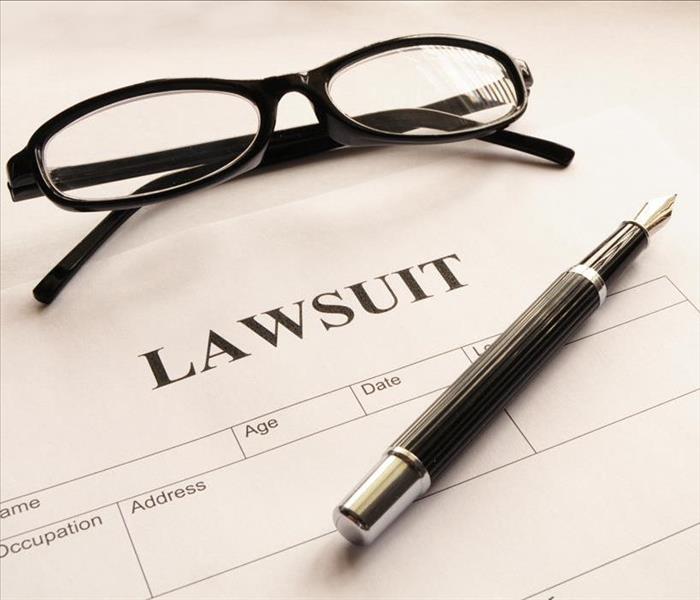Avoid Lawsuits and Negative Mold Insurance Claims
11/8/2021 (Permalink)
Property owners are responsible for providing a safe environment that is free from unreasonable risks. For example, if a client or tenant trips and is injured because of the related fall, the property owner may be held liable for the costs associated with the accident. Unfortunately, there are many types of conditions that could be considered dangerous:
- Uneven steps
- Slippery floors
- Falling items
- Lack of lighting
- Limited security
- Defective appliances
As the owner or manager of a commercial property, you could find yourself liable for any injuries that occur because of these conditions, as well as others. A lot of property maintenance issues are easy to spot and recognize, but some are less obvious, such as mold growth. The consequences of missing signs of mold often include mold insurance claims and lawsuits from tenants.
Potential Mold Insurance Claims and Lawsuits
The rules governing when and how a lawsuit can be filed vary from state to state, but most states maintain an implied warranty of habitability, meaning that property owners and managers are required to maintain the building and make sure it is safe, livable, and workable. If you fail to provide adequate care and maintenance for the property and mold causes damage, tenants can sue.
Non-Disclosure
If you knew that mold or related damage was present and you didn't warn disclose this to the tenant, you may face a lawsuit. It is illegal for you to keep this information quiet. If serious damage or injury occurs as a result of the mold, you could face hefty financial penalties.
Uninhabitable Situation
Once the presence of mold is obvious, professional mold remediation must take place quickly. Otherwise, the tenant can legally withhold rent or move out of the property (with or without a contract). Remember that the cost of remediation is usually easier on your budget than the costs associated with lawsuits. Reach out to your insurance provider to learn more about your mold insurance claims.
Lack of Reimbursement for Repairs
Tenants may arrange for cleanup and repairs on their own, and you may be required to reimburse them for those repairs. This is especially true if you neglected to arrange for repairs within a reasonable amount of time. If your tenant has to sue for reimbursement, you'll end up paying more than you would have for the original amount of the mold claim.
Injuries
Mold growth can cause a lot of property damage, including weakening the structural integrity of walls, floors, and ceilings. If that damage leads to a situation where a tenant or someone visiting the property is injured, you may be subjected to a lawsuit.
Proof of Neglect
Don't dismiss your tenants' concerns about the presence of mold. If tenants reach out to professionals for environmental testing or a damage assessment and you do nothing about the findings, there's a good chance that you'll face a mold growth lawsuit.
It is possible to make mistakes in your efforts to be a responsible property owner in Clearfield, UT, but what you don't know can still land you in legal trouble. Avoid the legal and financial penalties of failing to work through cleanup, remediation, and mold insurance claims by arranging prompt professional action.




 24/7 Emergency Service
24/7 Emergency Service
